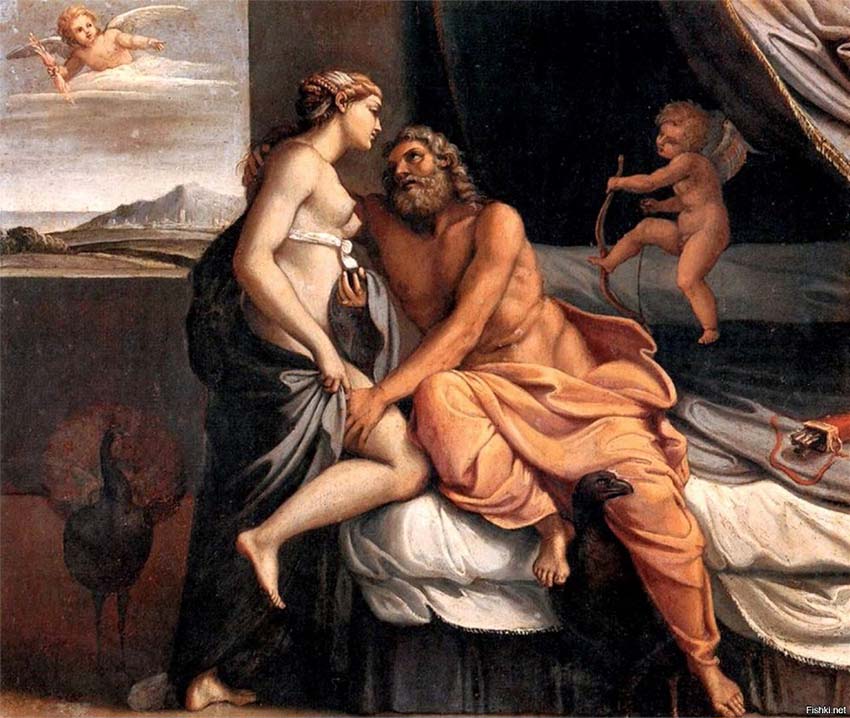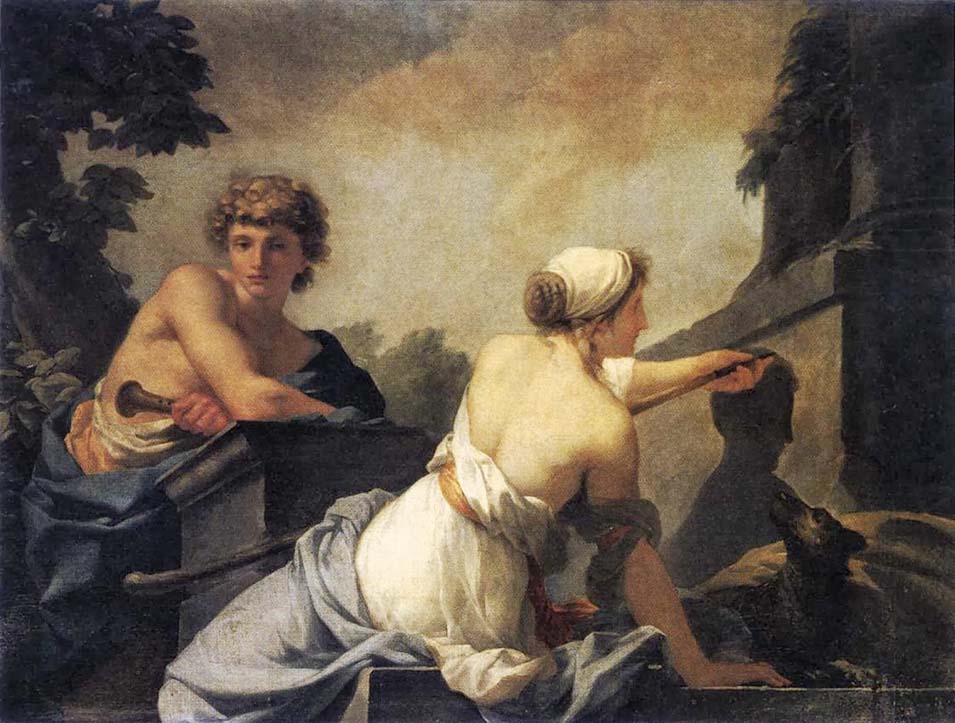Iasion
In Greek mythology, Iasion (Ancient Greek: Ἰασίων or Ἴασος), also called Eetion (Ancient Greek: Ἠετίων), was usually the son of the nymph Electra and Zeus and brother of Dardanus, although other possible parentage included Zeus and Hemera or Corythus and Electra.
Mythology
It is said that Demeter fell in love with handsome Iasion, and that they lay in a thrice-plowed field. For this love, some believe, Iasion perished, being killed by Zeus with a thunderbolt.
Yet others have said that Iasion was destroyed by his own horses, and still others do not think he died at that time; for otherwise they had not said that Demeter could regret his graying hairs (see also Plutus).
Some have called Iasion son of Thuscus or son of Ilithius, but others have said that he was the son of Zeus and Electra, one of the Pleiades.
It was Zeus, they say, who instructed his son Iasion in the initiatory rite of the mysteries in Samothrace, the island in the northern Aegean Sea, and they add that Iasion was the first to initiate strangers into them. Among these was Cadmus, who married Harmonia in Samothrace, where he was initiated by Iasion.
Apparently it was at the wedding of Cadmus and Harmonia, Iasion's sister, that Demeter fell in love with Iasion, having children by him, Plutus (Wealth) and Philomelus, who never agreed with each other.
But Philomelus, having received nothing from Plutus, and being left with his own talent alone, became the inventor of the wagon, supporting himself by cultivating the fields.
It has also been told that Iasion married the goddess Cybele, and that after their son Corybas, the Corybantes, who celebrate the rites of his mother, were named.
Iasion is now among the stars; for some say that the constellation of the Twins (Gemini) shows Iasion and Triptolemus, the young man who received from Demeter wheat and a chariot of winged Dragons with which, flying through the sky, he sowed the whole inhabited earth.

Sources
Oxyrhynchus Papyri, 1359 fr. 2 as cited in Hesiod, Ehoiai fr. 102
Bibliotheca 3.138, Theogony 969ff, Odyssey 5.125ff.
Homer, Odyssey 5.125 ff
Hesiod, Theogony 969 ff
Hesiod, Catalogues of Women Fragment 102
Pseudo-Apollodorus, Bibliotheca 3.138
Diodorus Siculus, Library of History 5.48.2 ff
Diodorus Siculus, Library of History 5.48.1
Strabo, Geography 7 Fragment 49
Clement, Exhortation to the Greeks 2.12
Pseudo-Hyginus, Fabulae 250
Pseudo-Hyginus, Fabulae 270
Pseudo-Hyginus, Astronomica 2.4
Pseudo-Hyginus, Astronomica 2.22
Ovid, Amores 3.10
Ovid, Sorrows of an Exile (Tristia) 2.1
Conon, Narrations 21
Dionysius of Halicarnassus - Roman Antiquities 1.61
Scholiast ad Theocritus 3.30
Eustathius ad Homer 1528
Tzetzes ad Lycophron 29
Stephanus Byzantium s.v. Dardanos.













